In the system shown in fig., mA=4m, mB=3m, and mc=8m. Friction is absent everywhere. String is inextensible and light. If the system is released from rest, then
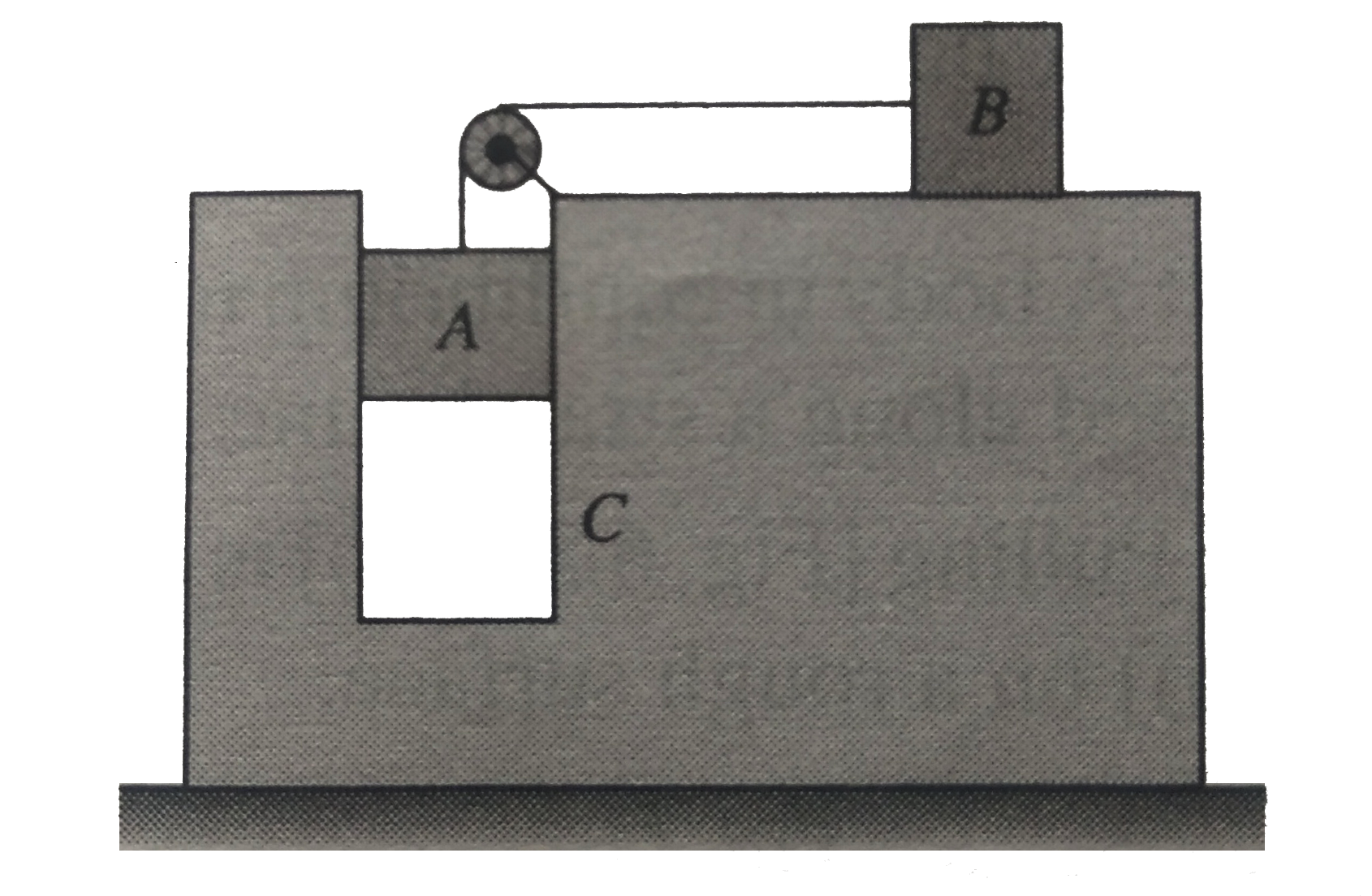
Acceleration of Block B is
The correct Answer is:Vertical acceleration of A=a=6.25ms−2 (downwards) ; Horizontal acceleration of A=c=1.25ms−2 (rightward) ; Acceleration of B=(a−c)=5.00ms−2(≤ftward) ; Acceleration of C=c=1.25ms−2 (rightward).
Let verically downward component of acceleration of A be a and let acceleration of C be c (rightward).
Then horizontal component of acceleration of A is c (rightward) and acceleration of B, relative to C is a (leftward). Hence, resultant acceleration of B is ,(a−c) leftward.
Now considering free body diagrams.
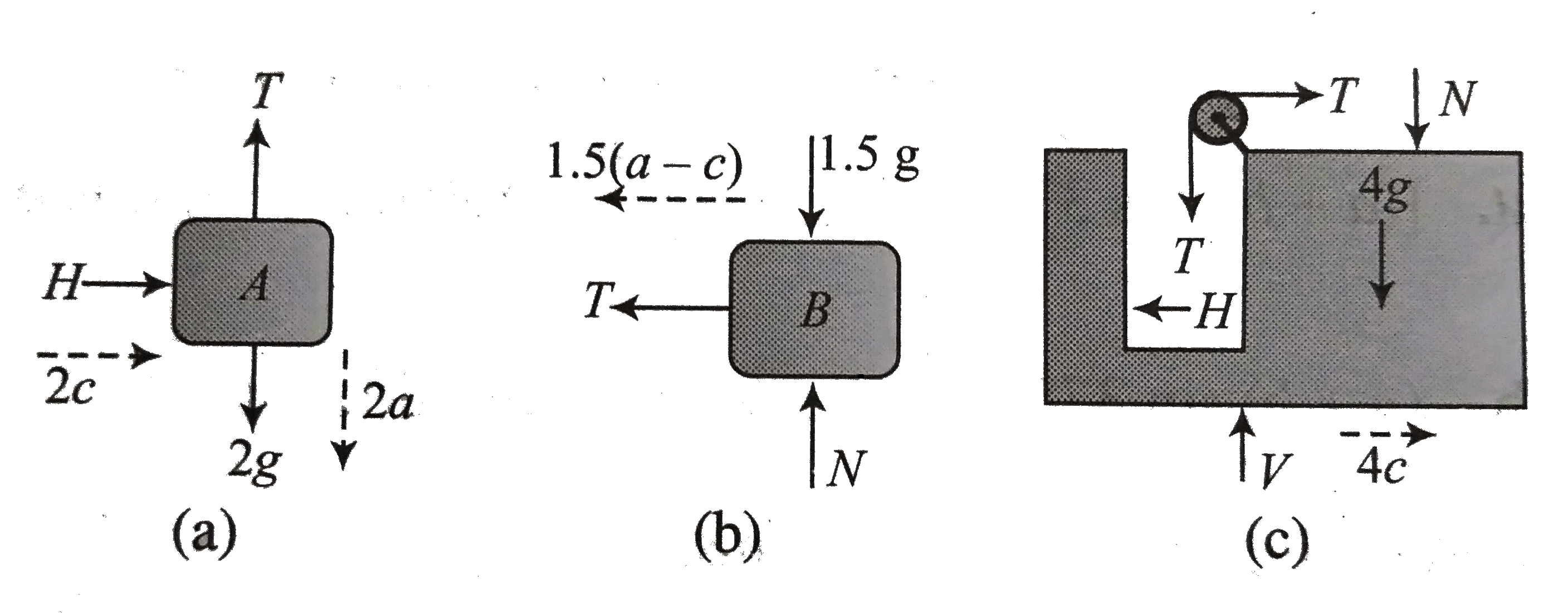
For block A,
H=2c ...(i)
2g−T=2a ..(ii)
For horizontal forces on block B,
T=1.5(a−c)...(iii)
For horizontal force on block C,
T−H=4C ..(iv)
From above equations,
A=6.25ms−2andc=1.25ms−2
Vertical acceleration of A=a=6.25ms−2 (downwards)
Horizontal acceleration of A=c=1.25ms−2 (rightward)
Acceleration of B=(a−c)=5.00ms−2(leftward)
Acceleration of C=c=1.25ms−2 (rightward).
Topper's Solved these Questions
- BOOK - CENGAGE PHYSICSCHAPTER - NEWTON'S LAWS OF MOTION 1EXERCISE - Single Correct76videos
NEWTON'S LAWS OF MOTION 1
- BOOK - CENGAGE PHYSICSCHAPTER - NEWTON'S LAWS OF MOTION 1EXERCISE - Multiple Correct11videos
NEWTON'S LAWS OF MOTION 1
- BOOK - CENGAGE PHYSICSCHAPTER - NEWTON'S LAWS OF MOTION 1EXERCISE - Exercise 6.413videos
NEWTON'S LAWS OF MOTION 1
- BOOK - CENGAGE PHYSICSCHAPTER - MISCELLANEOUS VOLUME 2EXERCISE - INTEGER_TYPE10videos
MISCELLANEOUS VOLUME 2
- BOOK - CENGAGE PHYSICSCHAPTER - NEWTON'S LAWS OF MOTION 2EXERCISE - Integer type1videos
NEWTON'S LAWS OF MOTION 2
Similar Questions
In the system shown in fig., all pulleys are mass less and the string is inextensible and light.
(a) After the system is released, find the acceleration of mass m1
(b) If m1=1kg,m2=2kgandm3=3kg then what must be value of mass m4 so that it accelerates downwards?
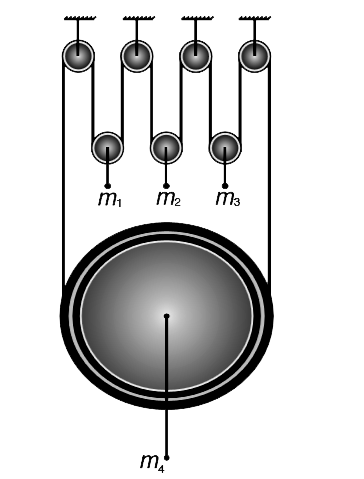 View Solution
View SolutionIn the arrangement shown in the fig. all pulleys are mass less and the strings are inextensible and light. Block A has mass M.
(a) If the system stays at rest after it is released, find the mass of the block B.
(b) If mass of the block B is twice the value found in part (a) of the problem, calculate the acceleration of block A.
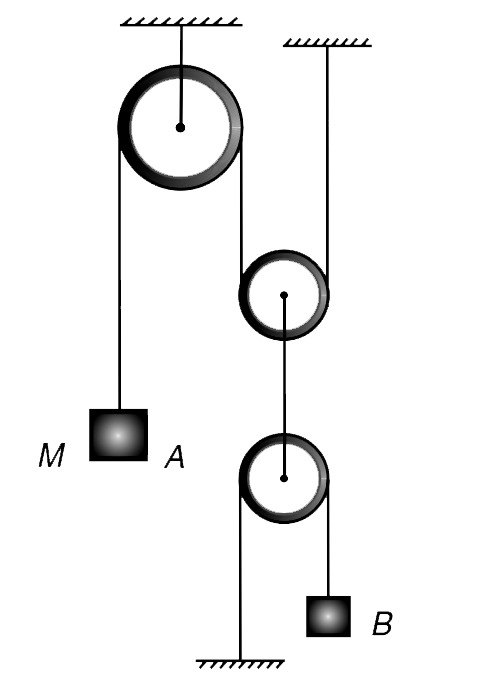 View Solution
View Solution
Knowledge Check
- Question 1 - Select One
In the system shown in fig., mA=4m, mB=3m, and mc=8m. Friction is absent everywhere. String is inextensible and light. If the system is released from rest, then
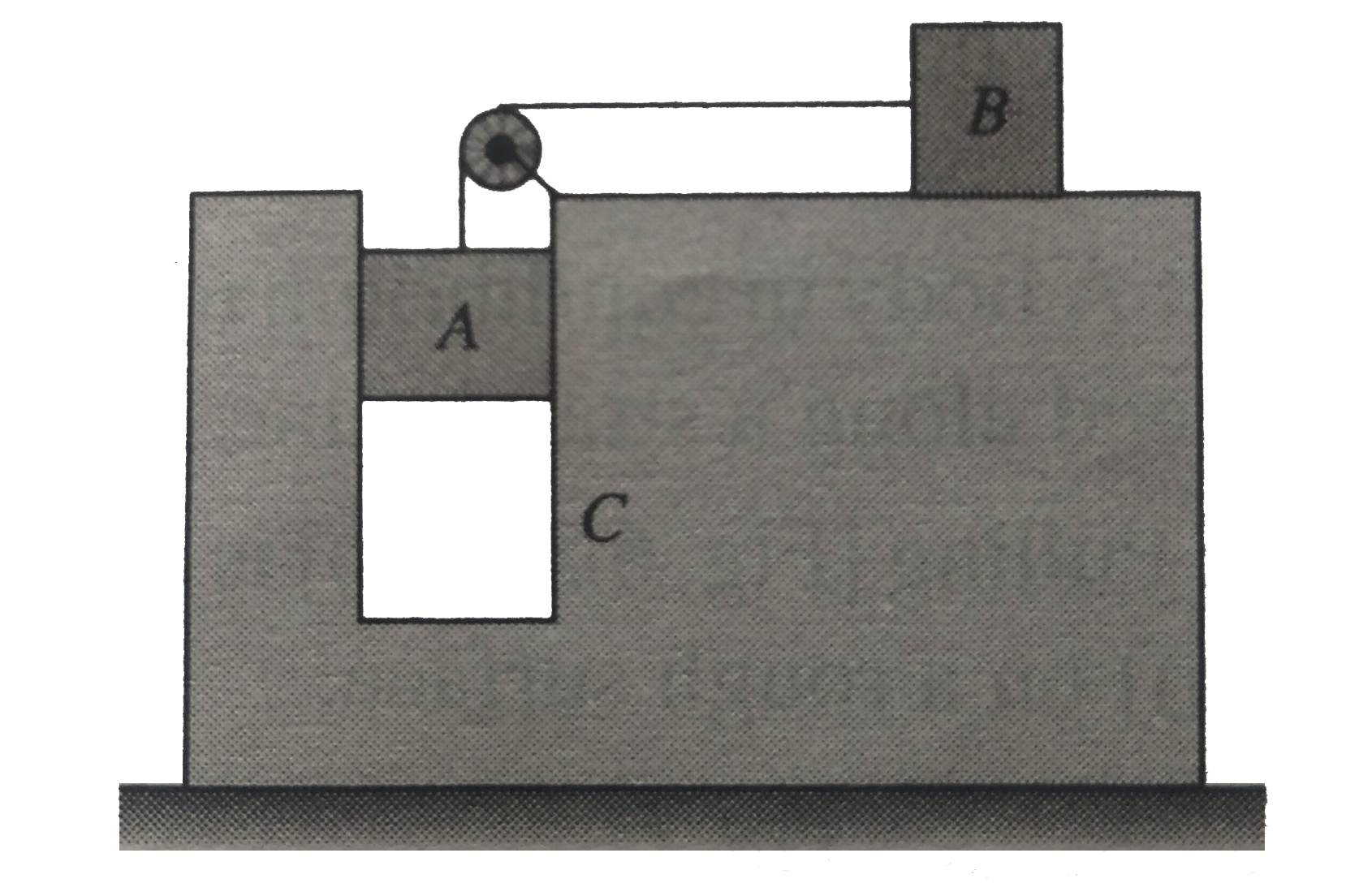
Acceleration of block C isA1/4ms−2B2/7ms−2C5/4ms−2D1/3ms−2 - Question 2 - Select One
In the system shown in fig., mA=4m, mB=3m, and mc=8m. Friction is absent everywhere. String is inextensible and light. If the system is released from rest, then
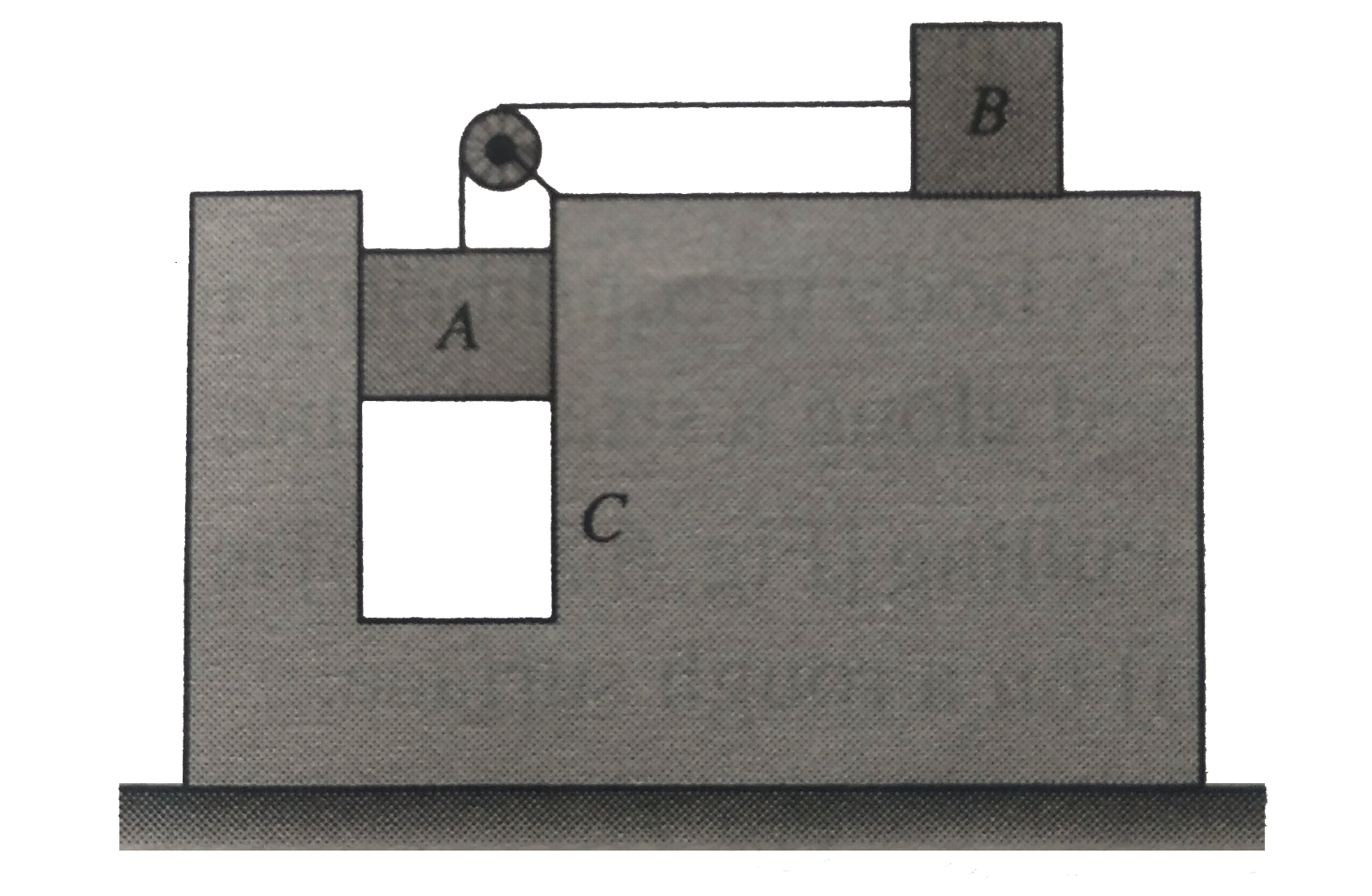
Acceleration of Block A in horizontal direction isA5/4ms−2B21/2ms−2C11/7ms−2D27/5ms−2 - Question 3 - Select One
In the system shown in figure mB=4kg , and mA=2kg . The pulleys are massless and friction is absent everywhere. The acceleration of block A is.
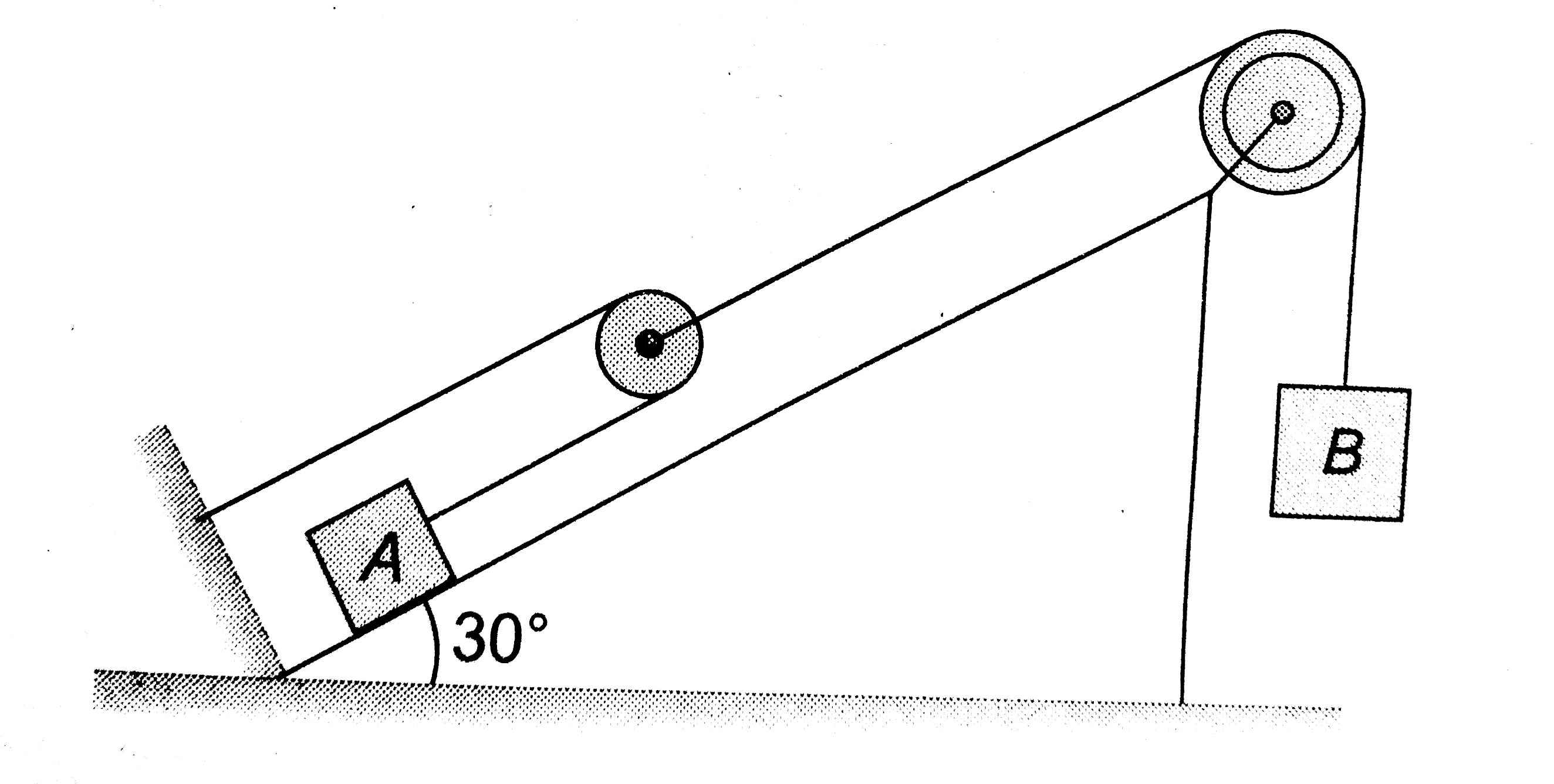 A10/3m/s2B20/3m/s2C2m/s2D4m/s2
A10/3m/s2B20/3m/s2C2m/s2D4m/s2
Figure-2.54 shows a block of mass m is placed on an inclined wedge of mass M If the system is released from rest find the acceleration of m and M.
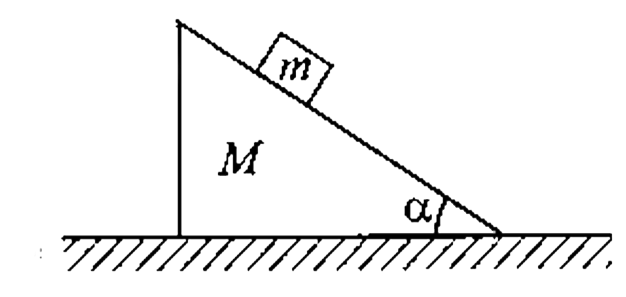 View Solution
View SolutionTwo blocks A and B are arranged as shown in figure.The pulleys are light and frictionless.The strings are light and inextensible.If the acceleration of the block B is 3ms2 ,then the acceleration of the block A is __________ms2
View SolutionA block of mass m can slide freely in a slot made in a bigger of mass M as shown in fig. There is no friction anywhere in the system.
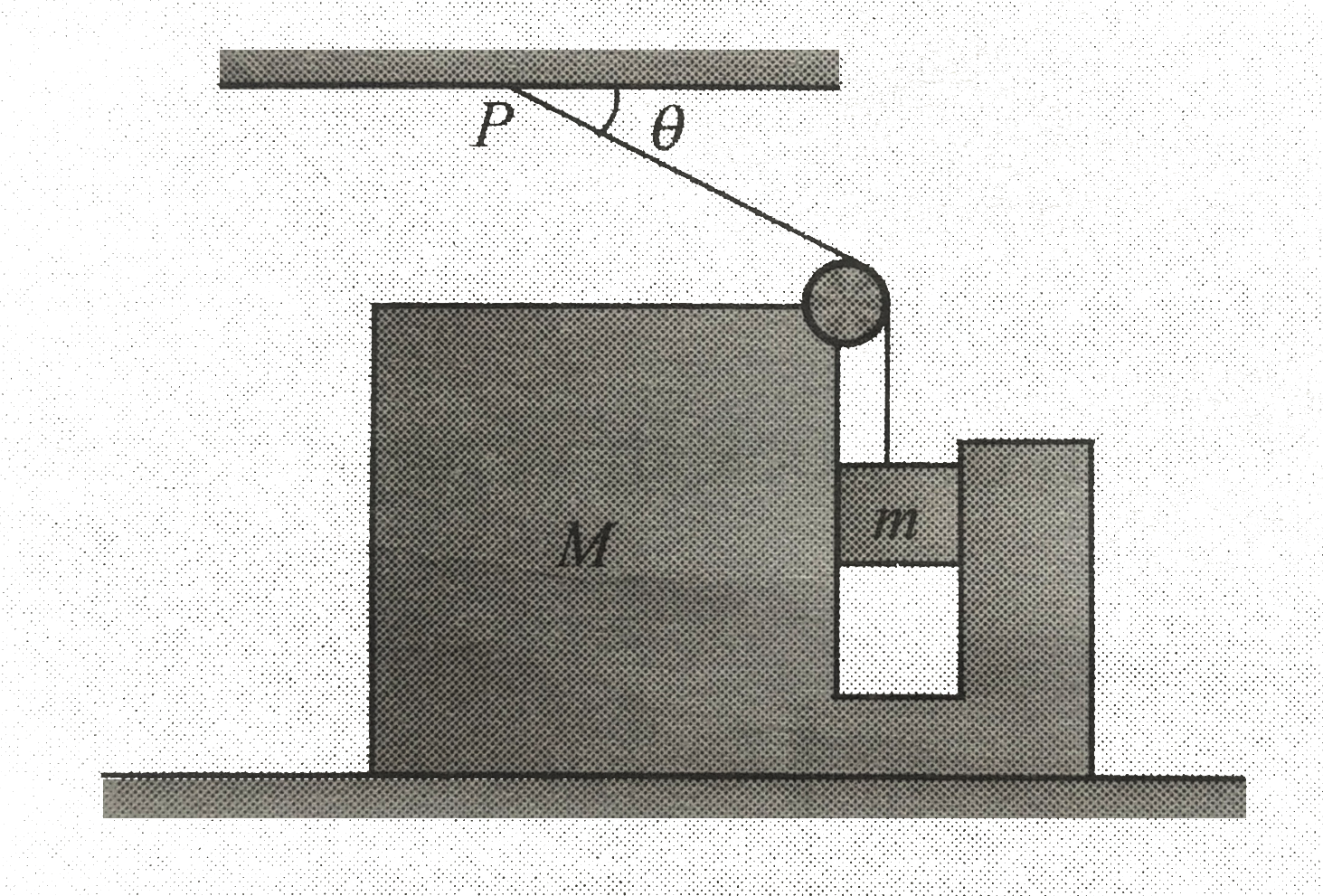
The block m is connected to one end of a string whose other end is fixed at point P. system is released from rest when the string at P makes an angle θ with horizontal. Find the acceleration of m and M after release.View Solution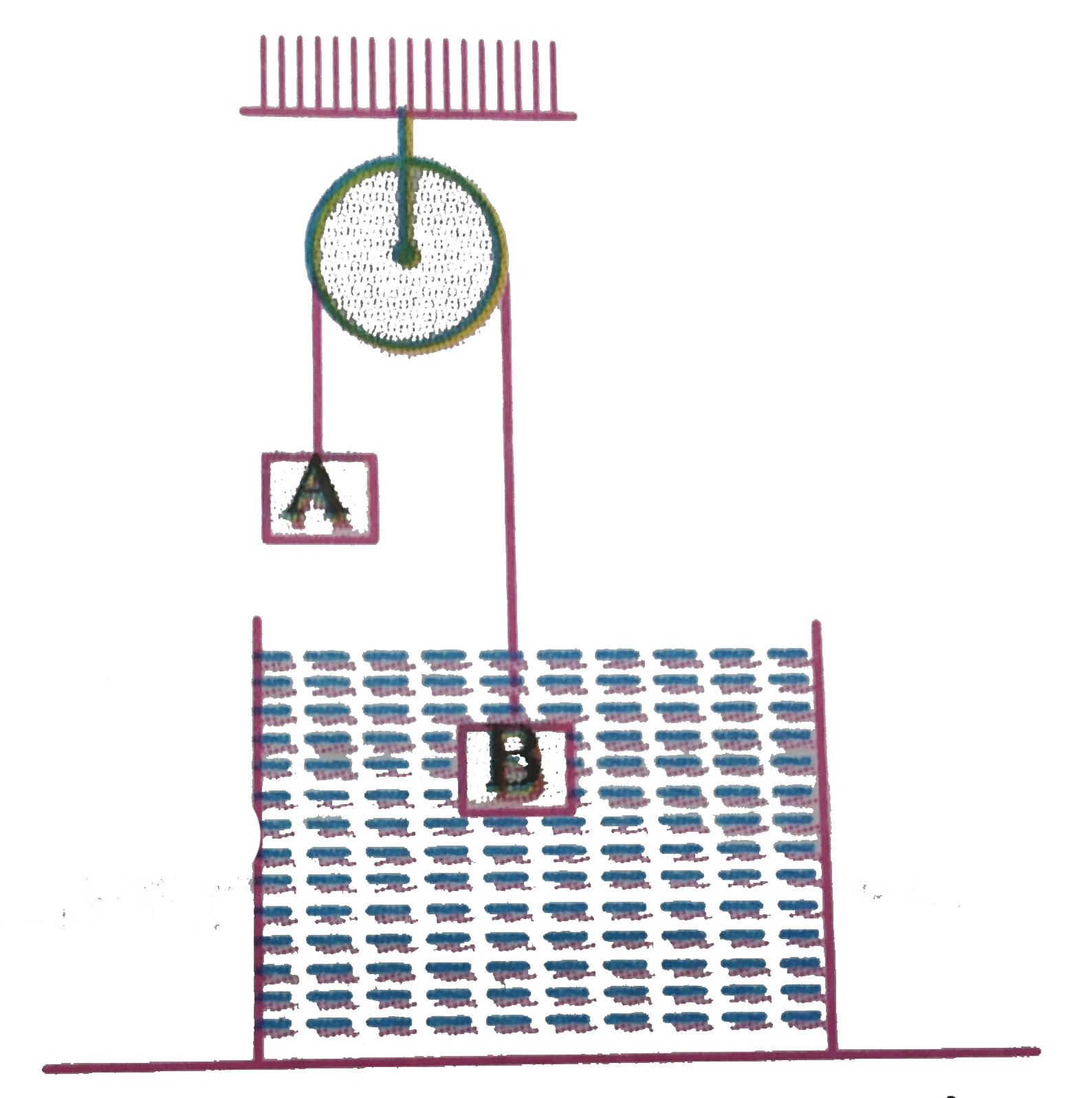
In the arrangement shown in the figure mAmB=23 and the ratio of density of block B and the liquid is 2:1 The system is released from rest. ThenView SolutionIn the system shown in fig. m1>m2 . The system is held at rest by thread BC. Now thread BC is burnt. Answer the following:
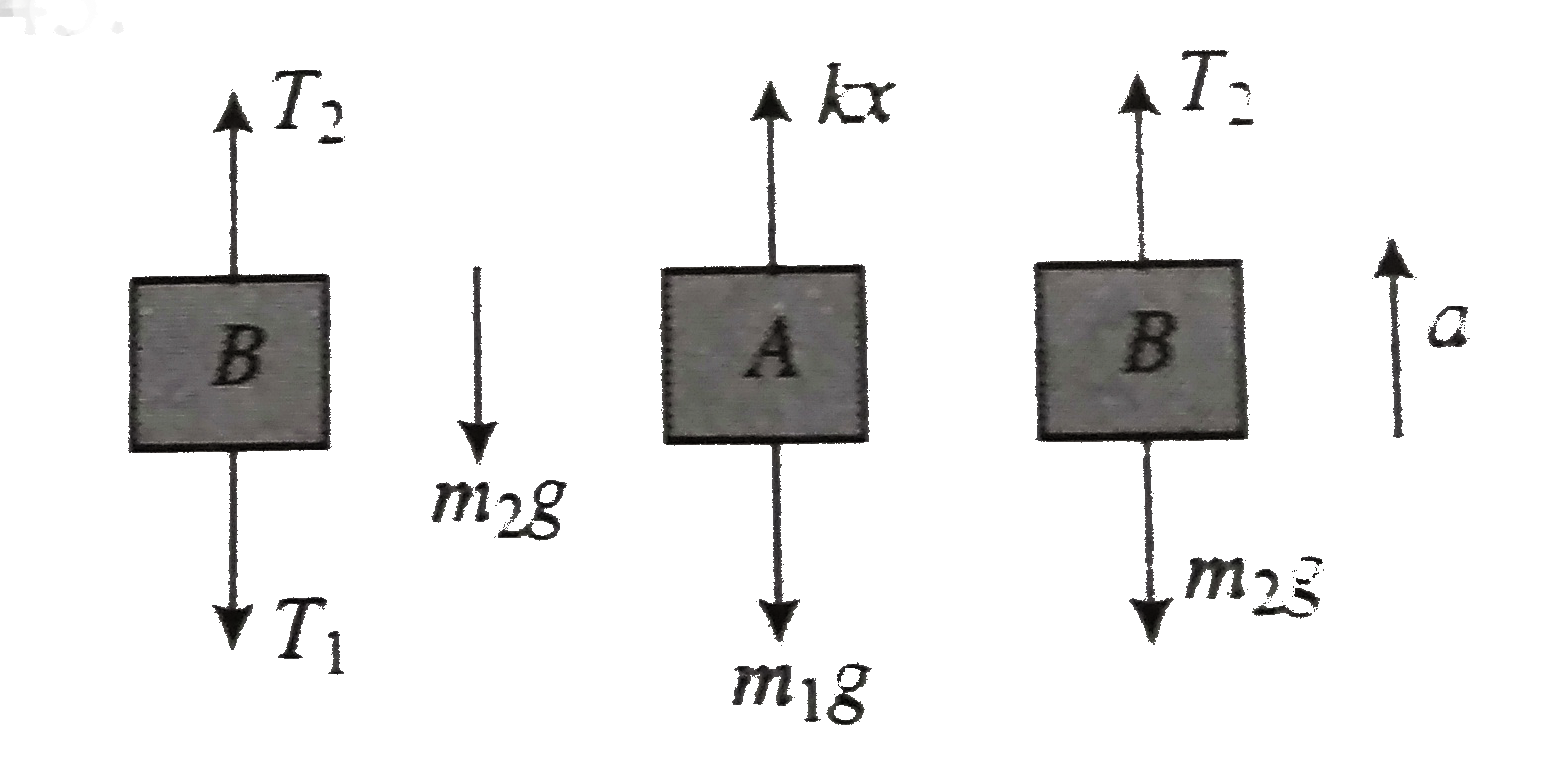
Just after burning the thread, what is the acceleration of m2?View Solution

